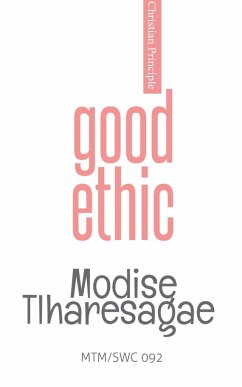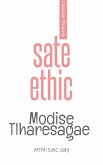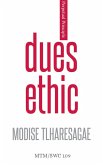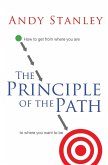The Principle Of Tolerance is one intricate hive of complaisance to the discerning. In a season where self love has abounded in the church and among humanity; one would ask self; Can any do anything for any other without loitering for what is in it for them? The defected moral of man now is; whatever I do has to have something for me. Yet The Parable Of The Good Samaritan as affectionately known: though a clear contrast to the teachings of Christ in that moment in time; for He said there is none good but God; thoroughly examplifies the difference between Law and Grace. One would say it does not just hint at a desire for more but also a thirst to break the boundaries set by the Law to express the loving kindness to all. This is a surprising vendetta on the part of Christ for by the same Law Christ Himself did refuse to deliver not one but two kids; which both fortunately were delivered by their mothers' faith. He could discern and was surely wearied by its limiting factor and intolerance. Matthew 15:26 KJV But he answered and said, It is not meet to take the children's bread, and to cast it to dogs. Mark 7:27 KJV But Jesus said unto her, Let the children first be filled: for it is not meet to take the children's bread, and to cast it unto the dogs. The parable is one of the most misconstrued because until you perceive the demand of the Law on the uniformed man and the two stiff cultures of the incumbents of the teaching; it is all concealed to how many differences and how much danger the Samaritan had to fathom and expose self to in the used sampling of the nationalities. The stiff cultures between the two though both living in the heritage of Jacob or Israel were astounding as they had no dealings with each other. Whenever this parable is quoted many simply forget that the only thing that could have clearly described a Jew from a Samaritan was his blue tussle that he had to stick to his right shoulder to always remember the Law. With it striped with the clothes, there was no way the Priest or Levite could have identified him as a Jew. Haggai 2:12-13 KJV If one bear holy flesh in the skirt of his garment, and with his skirt do touch bread, or pottage, or wine, or oil, or any meat, shall it be holy? And the priests answered and said, No. Then said Haggai, If one that is unclean by a dead body touch any of these, shall it be unclean? And the priests answered and said, It shall be unclean. The above words from the book of Haggai teaches us something. That there are things that are binding to both a Priest and Levite by Law. Whatever they touch with their garments determines their cleanliness before the eyes of God. With that said, one can begin to understand the parable; putting in consideration what Christ was saying to the man; being the ideal that the same Law that he is assuming perfection through would have forbade his own priest and the Levite to help him if he would find self in the same predicament. Yet someone not bound by any form of Law would be able to free them because of their liberty from the Mosaic Law. Meaning it was hard to find perfection on the Law; if the Samaritan out of the law of his own heart can do better than the Law of Moses. A thing that means we have to look beyond the simplistic good to be of help in this current world. For the Samaritan though he did help the Jew; the Jew by Law would be bound and would not stoop down to him to thank him nor seat at the same table with him; by his liberty he did rescue the undeserving Jew who deemed him but a dog
Bitte wählen Sie Ihr Anliegen aus.
Rechnungen
Retourenschein anfordern
Bestellstatus
Storno









